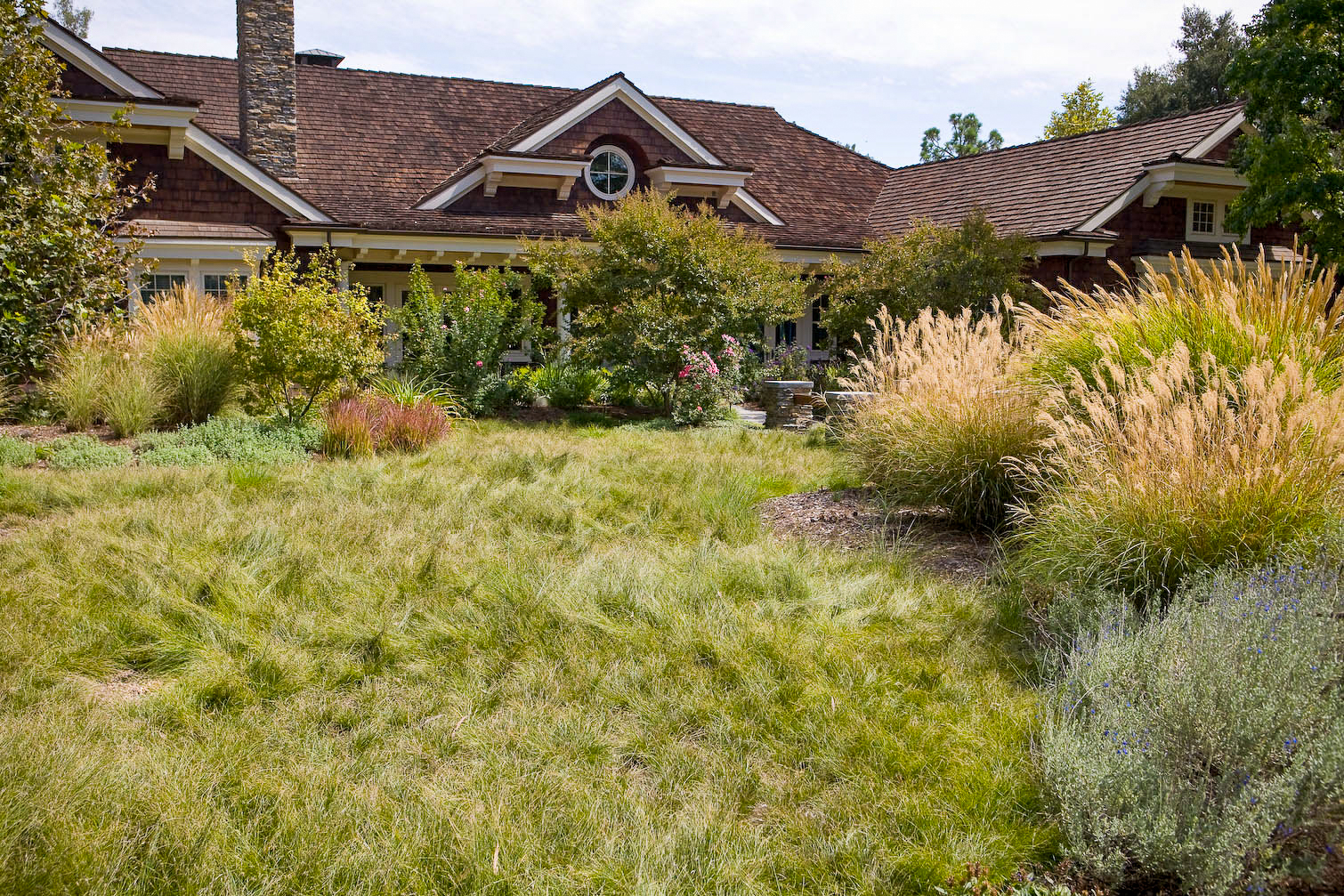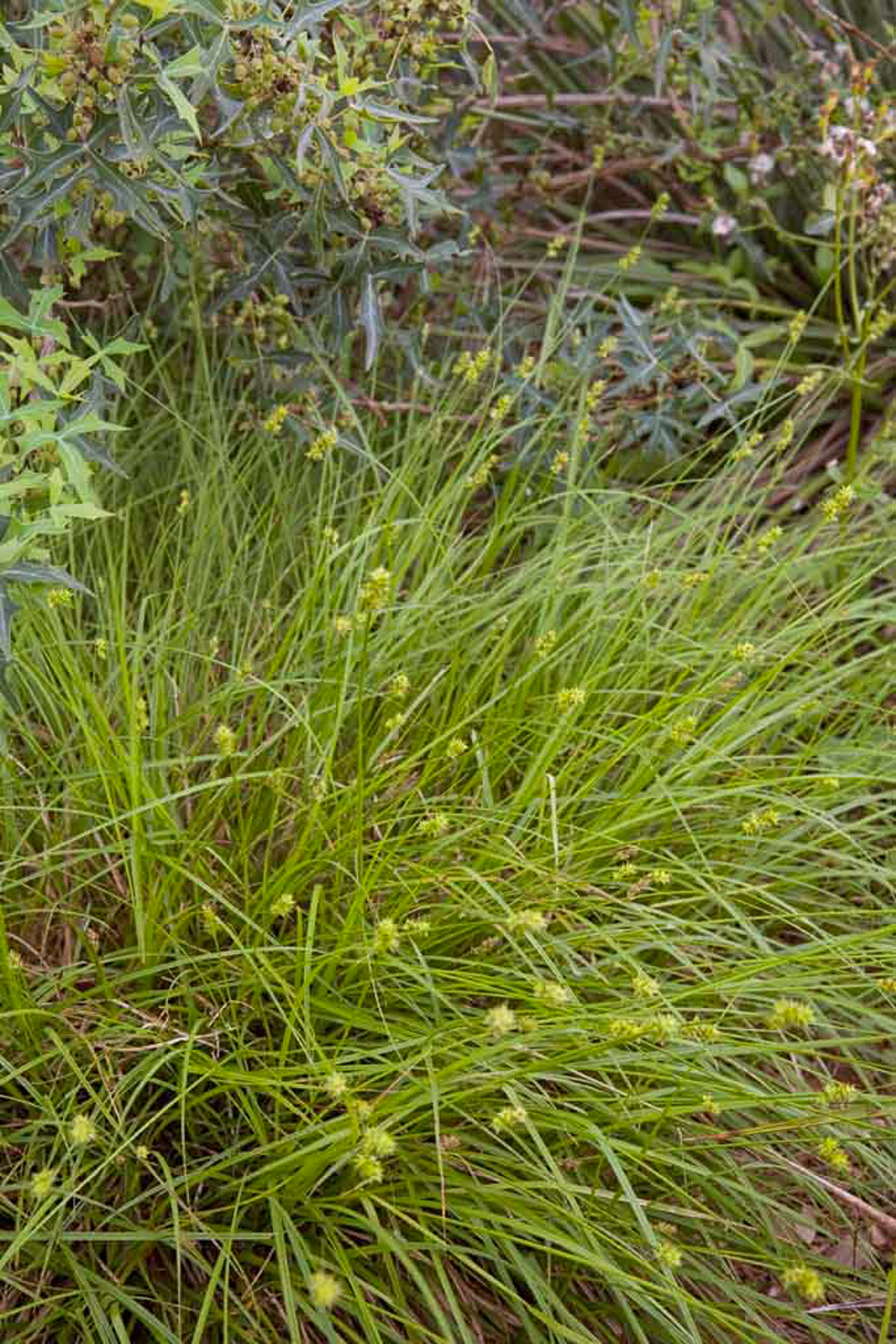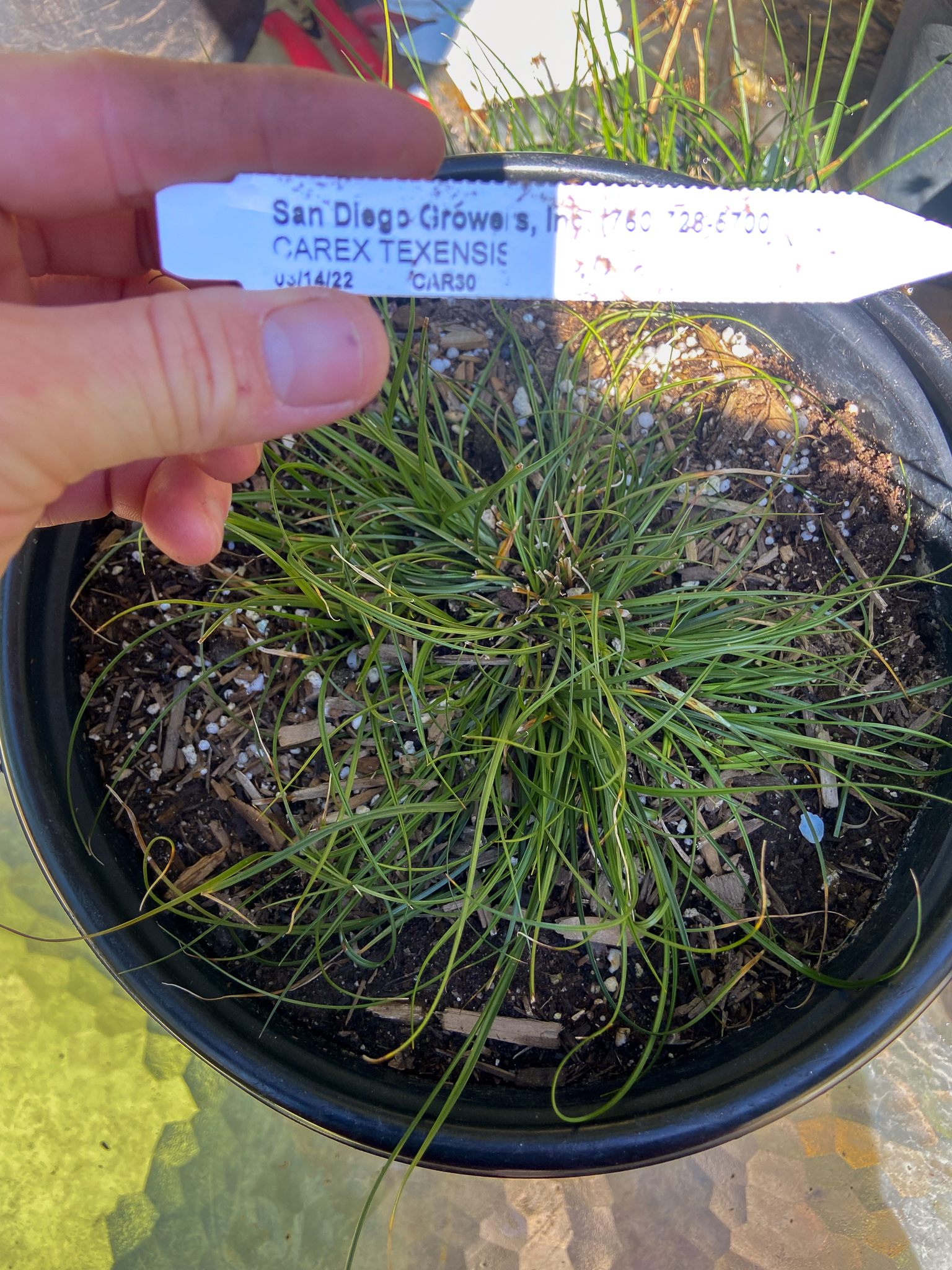
Carex texensis
Catlin Sedge
Description
A compact fine-textured low grass that’s mowable, walkable, and short by nature; the Catlin Sedge is a great filler grass in shady gardens. I use it with ferns and other shade-loving plants to make walk-on pathways through taller meadow sedges. It's drought-tolerant and can take tree root competition as well. Carex Texensis combines well with many other grasses and sedges, so it's not surprising that it looks good with other Texas natives like Leersia, Melica, and Mountain Pea.
Our plant came from the late Jack Catlin. It was the plant that changed everything for me. It was probably the first time I really understood that there was a world of grasses out there that I needed to know. I poke in one or two Texas Sedges in every meadow I make to honor Jack.
John's Notes
General Details
Plant Type
Sedge, Cyperaceae
Native Region
Southwestern USA
Seasonality
Cool-season, evergreen
Height
Foliage grows 4-6 inches tall, flowers 2-4 inches above the foliage
Width
4-6 inches
Alternate Names
Texas Sedge, Carex retroflexa Hort.
Aesthetic Form
Landscaping Value
Groundcover, natural lawn, pathways
Foliage
Fine textured medium-green leaves with copper tones after hard freezes
Flower Form
Long lax stems support noticeable green spikelets that dry to a pleasant tan
Bloom Cycle
Summer
Growth Habits
Clumping, spreads slowly via short rhizomes
Plant Pairings
Other grasses and sedges, Texas natives like Leersia, Melica, and Mountain Pea
Care & Maintenance
Watering Needs
Moderate water needs, Drought-tolerant
Soil Preferences
Wide adaptability from sand to clay
Sun Exposure
Full sun to shade
Winter Heartiness
< 0° F, USDA zones 5-9
Desert Adaptability
No Available Information
Costal Adaptability
No Available Information
Want to use this plant for a
Home garden?
Commercial design?
Meadow planting?
Landscaping Project?
Gallery




